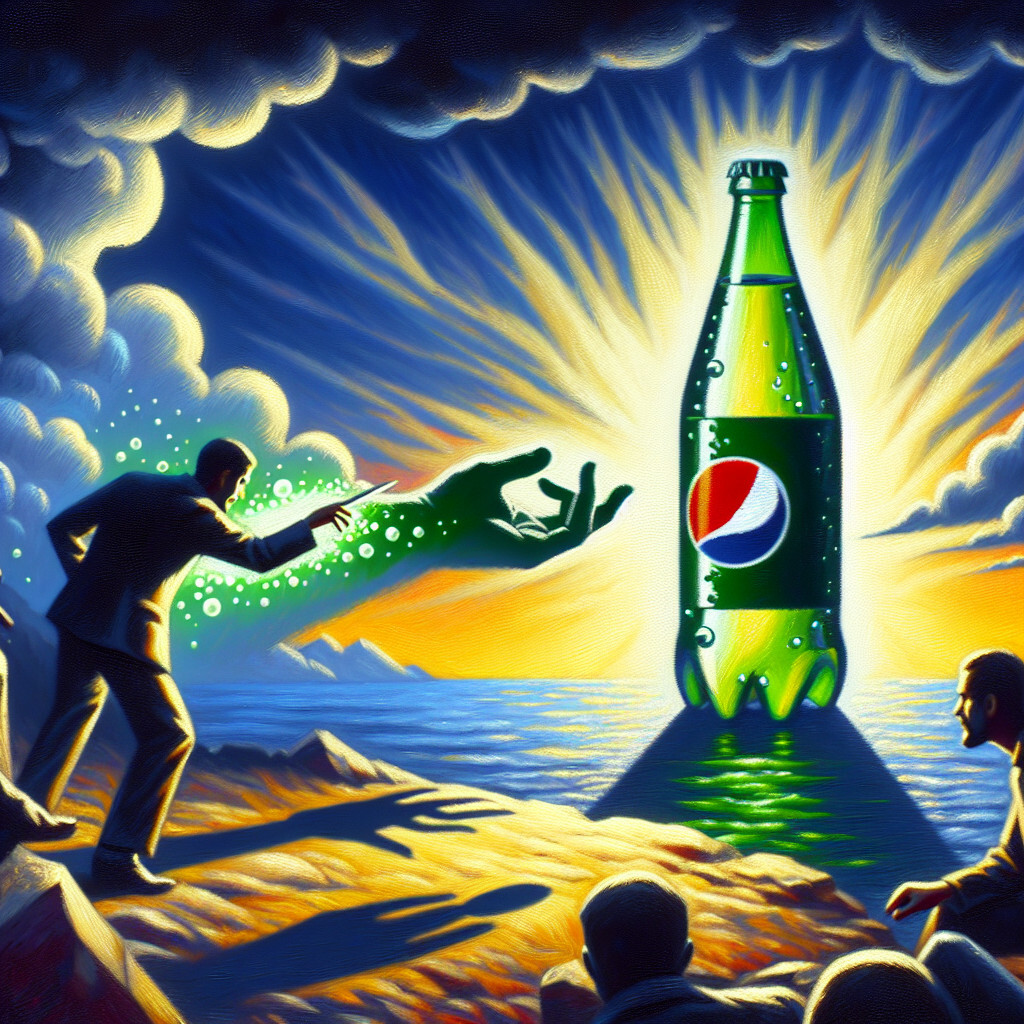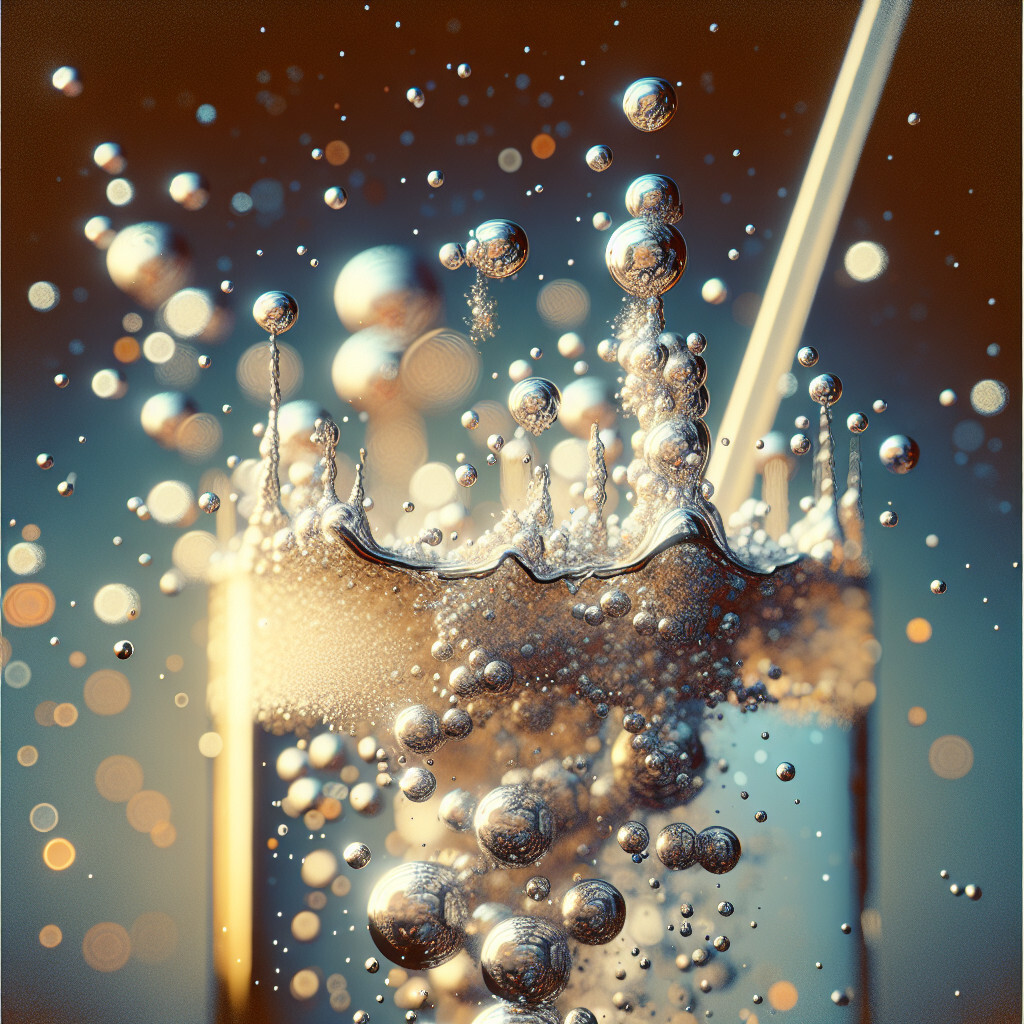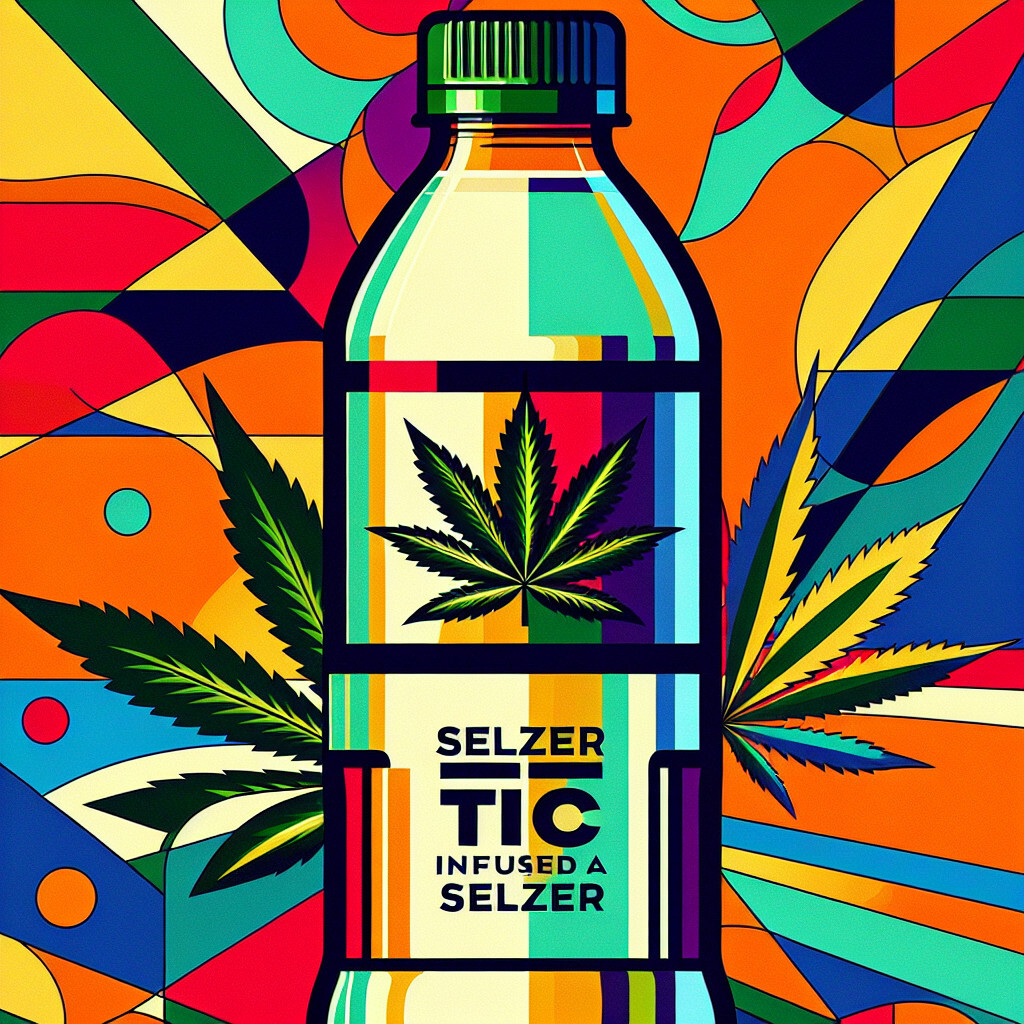-
Table of Contents
“Unveiling the Bubbles: The Hidden Depths of Seltzer Water”
Introduction

Seltzer water’s dark side refers to the potential negative health impacts associated with its consumption. While it is often marketed as a healthy alternative to sugary sodas, some research suggests that it may contribute to dental erosion due to its acidity. Additionally, the carbonation in seltzer water can lead to bloating and indigestion in some individuals. Despite its refreshing taste and zero-calorie appeal, it’s important to be aware of these potential drawbacks when incorporating seltzer water into your diet.
The Hidden Dangers of Seltzer Water Consumption
Seltzer water, also known as sparkling water, has gained significant popularity in recent years. Its refreshing fizz and the fact that it’s calorie-free make it an appealing alternative to sugary sodas. However, despite its seemingly harmless nature, there are hidden dangers associated with the consumption of seltzer water that consumers should be aware of.
Firstly, it’s important to understand that not all seltzer waters are created equal. Some brands add sodium, artificial sweeteners, or other additives to enhance the taste. These additions can turn a healthy beverage into a less healthy one. For instance, sodium can contribute to high blood pressure in some people, while artificial sweeteners can lead to weight gain and other health problems. Therefore, it’s crucial to read the labels carefully and choose seltzer water that doesn’t contain these additives.
Moreover, the carbonation in seltzer water can lead to a variety of digestive issues. The bubbles in the water can cause bloating, gas, and even heartburn. This is because the carbon dioxide gas in the water can cause a buildup of air in your digestive tract, leading to discomfort. While these effects are usually mild and temporary, they can be problematic for people with digestive disorders like irritable bowel syndrome or acid reflux disease.
In addition, the acidity of seltzer water can have detrimental effects on your dental health. The carbonation process involves the dissolution of carbon dioxide in water, which forms carbonic acid. This acid can erode tooth enamel over time, leading to cavities and other dental problems. While seltzer water is less acidic than sodas or fruit juices, it’s still more acidic than regular water. Therefore, frequent consumption of seltzer water can potentially harm your teeth.
Furthermore, while seltzer water is often marketed as a healthy alternative to soda, it can still contribute to weight gain if consumed in excess. This is because the bubbles in the water can trick your stomach into feeling full, leading to overeating later on. Additionally, some people may find the taste of plain seltzer water unappealing and add sugary syrups or fruit juices to enhance the flavor, which can add extra calories.
Lastly, it’s worth noting that seltzer water can also interfere with the body’s ability to absorb certain medications. The carbonation can increase the stomach’s acidity, which can affect how some drugs are absorbed and metabolized. Therefore, if you’re taking medication, it’s advisable to consult with your healthcare provider before incorporating seltzer water into your diet.
In conclusion, while seltzer water can be a refreshing and healthier alternative to sugary drinks, it’s not without its potential drawbacks. The added sodium, potential for digestive discomfort, potential dental erosion, possible contribution to weight gain, and interference with medication absorption are all factors to consider. As with most things, moderation is key. It’s also important to choose brands that don’t add unnecessary additives and to be mindful of how your body reacts to the beverage. By doing so, you can enjoy the fizz of seltzer water without falling prey to its dark side.
Unveiling the Dark Side of Seltzer Water: Health Risks and Environmental Impact
Seltzer water, also known as sparkling water, has gained significant popularity in recent years. Its refreshing fizz and variety of flavors make it an appealing alternative to sugary sodas and flat water. However, despite its growing fan base, there is a darker side to seltzer water that is often overlooked. This involves potential health risks and environmental impact that are worth considering before you reach for your next can or bottle.
From a health perspective, one of the main concerns with seltzer water is its potential to harm your teeth. The carbonation process that gives seltzer water its delightful bubbles involves the addition of carbon dioxide, which when combined with water, forms a weak acid known as carbonic acid. This acid can erode tooth enamel over time, leading to cavities and other dental problems. While seltzer water is less acidic than sodas or fruit juices, it is more acidic than regular water and can therefore pose a risk to dental health, especially when consumed in large quantities.
Another health concern is the potential impact on bone health. Some studies suggest that carbonated beverages, including seltzer water, may decrease bone density, increasing the risk of osteoporosis. However, it’s important to note that these studies often involve soda, which contains phosphoric acid, a compound not typically found in seltzer water. Therefore, while the risk to bone health is less clear than the risk to dental health, it is still a potential concern that warrants further research.
In addition to these health risks, there is also the environmental impact to consider. The production and disposal of seltzer water bottles and cans contribute to pollution and waste. Even when these containers are recycled, the process requires energy and resources. Furthermore, the carbonation process itself releases carbon dioxide into the atmosphere, contributing to greenhouse gas emissions.
Moreover, the transportation of seltzer water from production facilities to stores and homes also has a significant carbon footprint. This is particularly true for imported brands, which must be shipped long distances. In contrast, tap water has a much lower environmental impact, as it requires less packaging and transportation.
However, it’s not all doom and gloom for seltzer water enthusiasts. There are ways to mitigate these risks and reduce the environmental impact. For instance, using a home carbonation system can cut down on packaging waste and transportation emissions. Additionally, drinking seltzer water in moderation and maintaining good oral hygiene can help protect your dental health.
In conclusion, while seltzer water can be a refreshing and enjoyable beverage, it’s important to be aware of its potential downsides. The potential risks to dental and bone health, along with the environmental impact, are factors to consider when deciding how much seltzer water to include in your diet. As with many things in life, moderation and informed choices are key. So, the next time you reach for a can of seltzer water, remember to consider not just the refreshing fizz, but also the potential impact on your health and the environment.
The Truth about Seltzer Water: Is it as Healthy as You Think?
Seltzer water, also known as sparkling water, has gained significant popularity in recent years. Its crisp, refreshing taste and the satisfying fizz make it an appealing alternative to still water and sugary soft drinks. Many people have turned to seltzer water as a healthier choice, believing it to be just as beneficial as regular water. However, there is a darker side to seltzer water that is often overlooked.
The first point of concern is the impact of seltzer water on dental health. While it is true that seltzer water is free of sugar and artificial sweeteners, it is not entirely harmless. The carbonation process involves the addition of carbon dioxide, which when combined with water, forms carbonic acid. This acid, albeit weak, can gradually erode tooth enamel over time. The erosion of tooth enamel is irreversible and can lead to cavities, tooth sensitivity, and other dental problems.
Moreover, the acidity of seltzer water can also have implications for those with digestive issues. For individuals with conditions such as acid reflux or gastritis, the consumption of seltzer water may exacerbate their symptoms. The carbonic acid can stimulate the production of stomach acid, potentially leading to heartburn and discomfort. Therefore, while seltzer water may be a refreshing beverage for some, it may not be suitable for everyone.
Another aspect to consider is the presence of added sodium in some brands of seltzer water. Sodium is often added to enhance the taste, but it can contribute to high blood pressure and other health problems when consumed in excess. While the amount of sodium in seltzer water is typically less than in other beverages, it can still add up, particularly for those who consume it frequently or in large quantities.
Furthermore, while seltzer water is often marketed as a healthy alternative to soda, it can also contribute to weight gain if consumed in excess. This is because the bubbles in seltzer water can cause you to feel bloated, which can lead to overeating. Additionally, some people may find that the carbonation in seltzer water triggers cravings for other fizzy, and often sugary, drinks.
Lastly, it’s worth noting that seltzer water is not a direct substitute for regular water when it comes to hydration. While it can contribute to your daily fluid intake, the carbonation can also make you feel full, potentially leading to decreased overall water consumption. Regular water is still the best option for staying hydrated, particularly during physical activity or in hot weather.
In conclusion, while seltzer water may seem like a healthy and refreshing alternative to other beverages, it is not without its drawbacks. The potential impacts on dental health, digestive issues, sodium intake, weight management, and hydration should all be considered. This is not to say that seltzer water should be avoided entirely, but rather consumed in moderation and as part of a balanced diet. As with any food or drink, it’s important to be aware of what you’re consuming and to make informed choices about your health.
Seltzer Water: Debunking the Myths and Revealing the Risks
Seltzer water, also known as sparkling water, has gained significant popularity in recent years. Its effervescent charm and perceived health benefits have made it a preferred alternative to sugary sodas and flat water. However, despite its widespread acceptance, there are several misconceptions about seltzer water, and some potential risks associated with its consumption that are often overlooked.
One of the most common myths about seltzer water is that it is a healthier alternative to regular water. While it is true that seltzer water is a better choice than sugary drinks, it is not necessarily healthier than regular water. Seltzer water is simply water that has been carbonated, meaning it has been infused with carbon dioxide gas under pressure. This process does not add any nutritional value to the water. In fact, some brands of seltzer water may contain added sugars, artificial sweeteners, or other additives, which could potentially make them less healthy than plain water.
Another misconception is that seltzer water can aid in digestion. While the carbonation in seltzer water can make you feel full and may help with temporary relief of indigestion, there is no scientific evidence to support the claim that it aids in digestion. On the contrary, the carbonation can lead to bloating and gas, and for some people, it may even exacerbate symptoms of irritable bowel syndrome.
The potential risks associated with seltzer water are often downplayed or ignored. One of the most significant risks is its potential impact on dental health. The carbonation process creates carbonic acid, which can erode tooth enamel over time. While the acidity level in seltzer water is less than in sodas or fruit juices, regular and prolonged exposure can still lead to dental issues such as tooth sensitivity and cavities.
Furthermore, some studies suggest that the consumption of carbonated beverages, including seltzer water, may be linked to lower bone density. The exact cause of this is not clear, but it is believed that the phosphoric acid present in some carbonated beverages may interfere with calcium absorption, leading to weaker bones. However, it’s important to note that more research is needed in this area, as many of these studies have focused on soda rather than seltzer water specifically.
Lastly, while seltzer water is often marketed as a weight loss aid due to its ability to make people feel full, it’s worth noting that this feeling is often temporary. The carbonation can cause a temporary feeling of fullness, but it does not provide any nutritional value or lasting satiety. Therefore, relying on seltzer water for weight loss may lead to inadequate nutrient intake and potential health risks.
In conclusion, while seltzer water can be a refreshing and enjoyable beverage, it is important to consume it in moderation and be aware of the potential risks. It is not a substitute for regular water, and should not be relied upon for nutritional benefits or weight loss. As with any food or beverage, it is always best to read labels carefully, be aware of what you are consuming, and consult with a healthcare professional if you have any concerns.
Q&A
1. Question: What are the potential negative effects of seltzer water?
Answer: Seltzer water can potentially lead to tooth decay due to its acidity, cause bloating and gas due to its carbonation, and may contribute to IBS symptoms.
2. Question: Can seltzer water lead to weight gain?
Answer: While plain seltzer water doesn’t contain calories or sugars, flavored varieties may contain added sugars and calories that could contribute to weight gain if consumed in excess.
3. Question: Is seltzer water bad for your bones?
Answer: Some studies suggest that carbonated beverages may decrease bone density, increasing the risk of osteoporosis. However, this is more associated with sugary sodas than with seltzer water.
4. Question: Can seltzer water cause heartburn?
Answer: Yes, the carbonation in seltzer water can cause heartburn, especially in individuals who are prone to acid reflux.
Conclusion
In conclusion, while seltzer water is a popular and healthier alternative to sugary drinks, it has a dark side. It can potentially lead to dental erosion due to its acidity, may not be as hydrating as regular water, and can cause bloating and heartburn. Therefore, it should be consumed in moderation.






